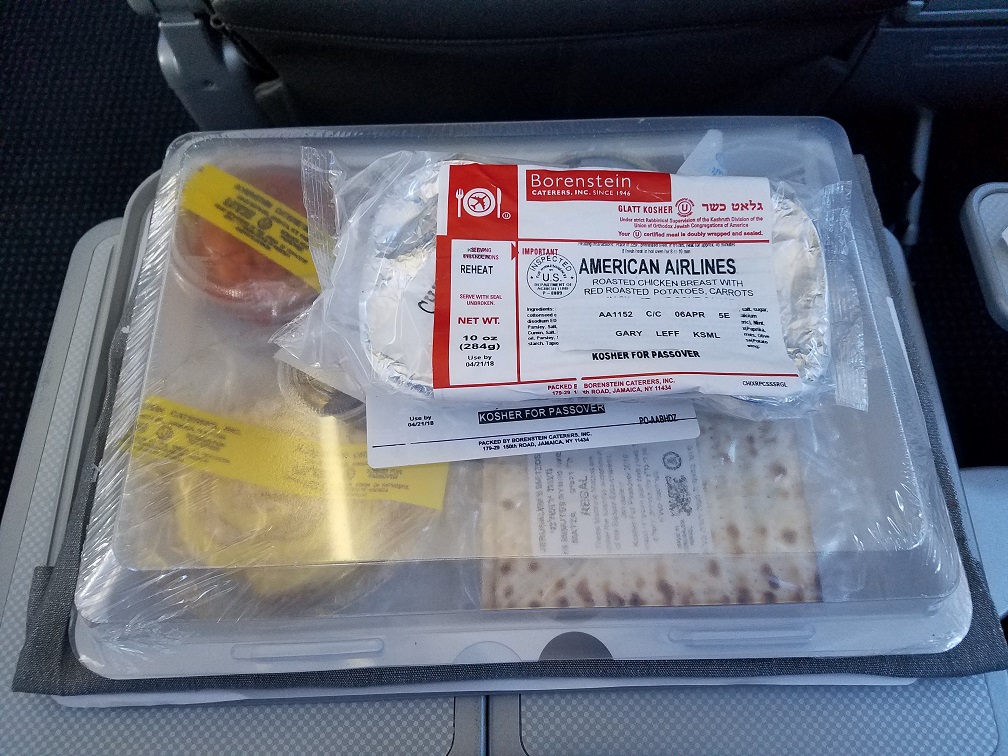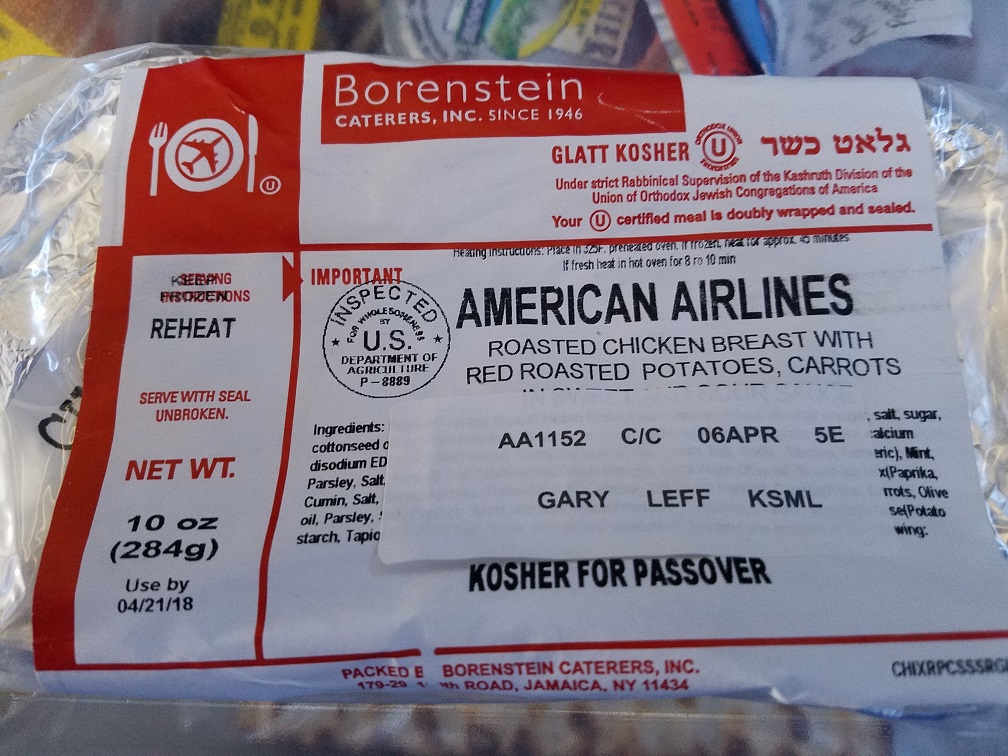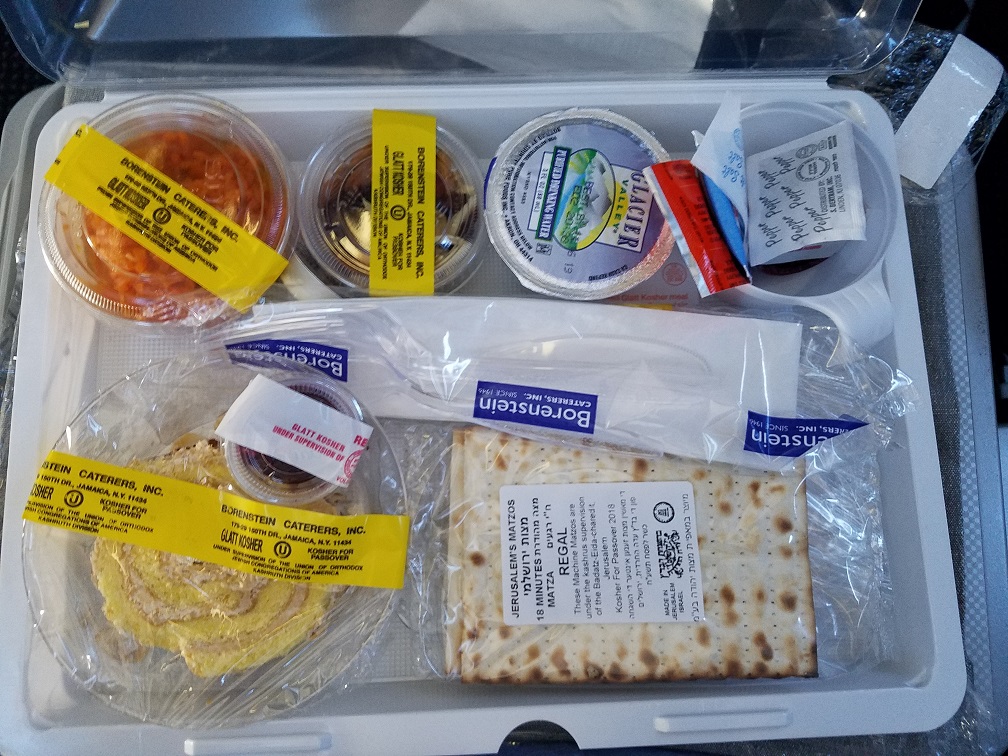Airplanes haven’t been significant vectors of virus spread even though passengers are indoors in groups for sustained periods. You might expect flights to be superspreading events, but they haven’t been.
That’s likely because of a combination of factors: strong air filtration (on aircraft larger than 50 seat regional jets), people aren’t talking very much, they’re all facing forward. Masks now help, too, when people follow the guidance.
Airlines have cut back inflight food and beverage offerings both for social distancing (to reduce passenger – flight attendant contact) and for cost savings. I’ve written that post-pandemic I don’t expect inflight product investment to return right away, as airlines work to repair their balance sheets after borrowing unprecedented sums to stay in business.
There’s still some scaled back meal service on longer flights, and in theory those flights are even more of a risk because of their duration – the time passengers are in an enclosed metal tube potentially with asymptomatic spreaders of virus. The judgment there is that some food is necessary on longer flights.
The Flight Detective argues that removing food from planes is an overreaction, and that food from a flight attendant is no riskier than food from a grocery store or restaurant takeout.
Sure, I get it, you’re not interacting with an actual person, but the item is. It is likely several people have had their fingers on the thing you’re taking home to put in your fridge or cupboard.
Not a great analogy? How about restaurant take-away? When you buy your food, someone in the place comes out with your bag and hands it to you, then you go home and eat it. The only difference on a flight is that you’d eat it where you are sitting.
Is that right? I’m not so sure in my own case. I’ve continued to follow some protocols for packages and food entering my home.
- Packages stay in the garage before coming inside the house, and I wash my hands after touching them.
- I do contactless grocery pickup. Everything initially goes in the garage, or the refrigerator/freezer in the garage. Wash hands. I don’t wipe everything down, but I wait for the virus to degrade if it’s on any of the packaging. I’m fortunate to live in Texas with a big garage, and to have inherited an extra refrigerator from the sellers when I bought the house. My routine wouldn’t look like this if I still lived in a DC-area condo.
- Restaurant pickup doesn’t wait to be eaten, but any virus in the food was likely killed during cooking and COVID-19 isn’t a food borne virus anyway. To the question of packaging, I wash my hands after touching the packaging and disinfect the counter surface where the packages sat.
You’re on a plane, airlines are handing out sanitizer wipes and you can (and should) bring your own sanitizer – the TSA will let you carry 12 ounces through security checkpoints. But actual washing hands? Avoids the lavatories. Those surfaces aren’t being cleaned between uses. And the door handles (on both sides)?
SARS-CoV-2 spread is largely via respiratory droplets. Most of my personal life precautions are probably over the top as a result. Still, they’re low cost approaches that don’t take much extra effort.
Similarly having extra hands on food seems like a mistake. However there are better solutions than no food at all. And airlines are going to have to differentiate the premium cabin experience to recover, or else they’ll be unable to sell premium fares.
In fact a strong inflight experience is even more compelling now when,
- So few concessions are open in airports
- Airlines are going to have to compete for business, with fewer passengers than there have been in recent years
I think about the Kosher meals I’ve ordered on American Airlines. They come completely wrapped from the caterer. The flight attendant presents them wrapped, because it’s clear then that they haven’t been altered in any way.

The entree is heated in the galley oven, and then presented to me still in its foil packaging.

Inside individual items are wrapped as well.

That’s a lot of packaging, to be sure, but there’s not a lot of hands on the food. And the current tray setup includes hand sanitizer wipes, and again bring your own. It does seem possible to limit hands on food while still serving food, airlines have been doing it for years.


It’s cost-cutting disguised as hygiene. Sad.
And on United, those ksml are often still frozen, so reduced chance of infection anyway!
I haven’t ordered kosher meal in decades. They’re not on board so often that I have to carry backup, and when the backup is better, what’s the point?
So reduced service isn’t going to bother me, even if I have to buy overpriced drinks to bring on board. Surely some concessions will open?
Has flying really devolved to the point of being dominated by bus travelers, or, is everybody that childish requiring common sense directions for everything? Even before the Wuhan Virus hit, I would have never been caught dead touching the bathroom door handle on either side, the flusher, lifting the seat, or the faucets with bare hands, but rather, with sufficient paper to protect my hand. If using bare hands, one might as well lick the ticket counter!
Funny, I was just going to inquire of you today Gary re status of inflight transatlantic catering. Their is no logical reason to eliminate separate cocktail/wine services, or, to revert to a boxed meal in lieu of serving separately the appetizer, hot entree, salad, and dessert-other than is the carrier under the delusion that such severe reductions in first/business clientele will actually cut costs? Historically, that has never worked. Indeed, Iberia long ago turned premium economy into a miserly, bargain basement by serving the same uneatable garbage as coach; and no meaningful cocktail service-it comes with the plated meal. When I inquired why on a 10 hour flight, MAD-ORD, the FA seriously responded, “yes, but in premium it is served on china.” (As in demitasse).
Instead, what will happen is what happened when Amtrak severely cutback its food/beverage services to just unappealing, frozen meals; same menu every day for each meal type; no first class lounge; lounge car attendants not trained to craft cocktails–and not supplied with appropriate mixers/condiments; plus, raised the sleeper fares astronomically.
In essence, be it flight or rail, experienced travelers who know the difference will jettison the unfavorable carrier offering a Gulag-style service despite their pricing.
@Pete +1. This is exactly the same as removing single use toiletries from hotel rooms. In both situations the companies try to pretend that they’re doing something better rather than just being cheap.
Cost cutting, boost in profits. Nothing more, nothing less. Never let a crisis go to waste. Rake in billions in free federal bailout money, reduce onboard service, hike prices and look to golden parachutes to get more golden. Welcome to greed. Pure and simple. The flight attendants no doubt also like it, less work in business class, just throw a chicken wrap on their table. No pillows, no magazines, no head phones, no blankets, no proper food or service, no cloth napkins. Sounds like coach. The golden age of business and first class came to an end in 2020 for good IMHO. Only the world’s 1 percenters who fly private planes will enjoy first class. The rest of the 99 percent will just have to read over and over BoardingArea blogs on airline flight reviews and dream of the day when. It’s over. The airline industry – collectively – is using COVID to rid themselves of anything deemed ‘service’ ‘quality’ ‘amenity’.
Cost cutting in disguise. Hygiene theater.
The concern over widespread surface transmission of COVID-19 is proving to be mostly unfounded.
Why can’t I get a drink in economy? Is that to protect me from COVID? Or saving the cost of provisioning and further justifying cutting FA positions to regulatory minimums? And is this part of the “permanent” cost savings airlines are trying to implement?
I think so!
The airlines in the USA would also be concerned with the litigious nature of the country. Heaven forbid a pax gets the virus from a meal tray (as low as the chance might be), the airline serving the meal will have to go through litigation and / or a huge settlement.
@747always~ agree with you on the litigious nature of the US, but it would be extraordinarily, to the point of impossible, for someone to claim and prove they contracted Covid-19 onboard any aircraft. This would be a lawyer’s picnic, but would result in failure.
read “extraordinarily difficult…..” above
Finally! Someone nails it! Delta’s santimonious “We are all about your safety!” is gag inducing. Only someone with an IQ hovering at room temp would buy this BS! Great article!